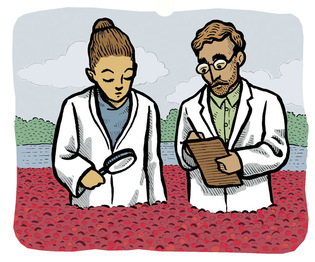 loading
loading
FindingsCranberries don’t protect your bladderA supposed preventative against UTIs doesn’t pass the test.  Gregory NemecView full imageMany women (and older men) who have experienced the burning and bladder pressure of a urinary tract infection (UTI) know that antibiotics work. But getting an antibiotic means taking the time to see a doctor—not to mention risking side effects, medication interactions, and antibiotic resistance, especially among those with frequent infections. So, some people drink cranberry juice as a preventative. According to Manisha Juthani-Mehta, an associate professor of medicine at the Yale medical school, the purported health benefits of cranberries have been ingrained in American culture since the pilgrims heard about them from the Native Americans. There are also reasons to suspect that cranberries could prevent UTIs. But her new study, published in the Journal of the American Medical Association, doesn’t back that up. Since recurrent UTIs are common in elderly women, Juthani-Mehta and her colleagues chose to study the effect of concentrated cranberry capsules on a population of female nursing home residents. Their multiple illnesses and medications leave them without good options for preventing UTIs: chronic suppressive antibiotics work, but they can breed resistant germs and can cause side effects. Study participants received two capsules a day for one year. Half got a mega-dose of cranberry, the other half a placebo. Every two months, the researchers collected urine from the participants and checked the rates of infection. What did they find? There was no meaningful difference. Cranberries may in fact be good for us, but there isn’t convincing evidence that they help our bladders.
The comment period has expired.
|
|